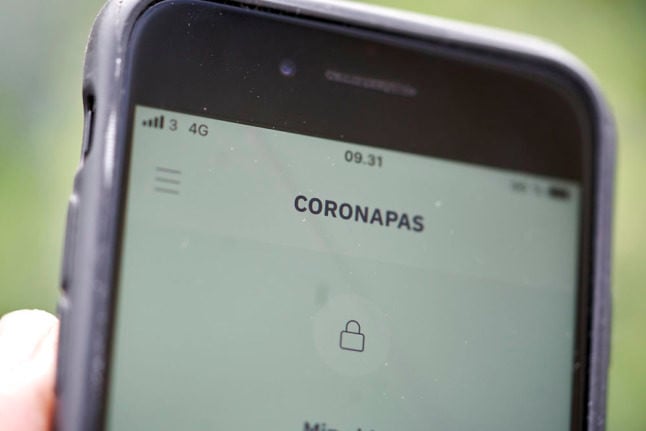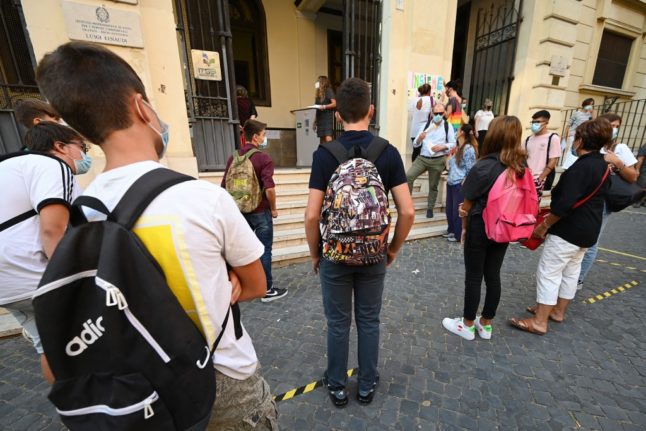A majority in parliament’s epidemic committee including parties on both the left and right wing supported the government’s position, reintroducing the coronapas from Friday while also raising Covid-19 to the status of “critical threat” to society.
The heightened status enables the government to introduce restrictions aimed at slowing the spread of the virus, provided a majority on the committee does not oppose this.
The move to bring back the coronapas was backed by parliament as expected, following the government announcement on Monday that it wanted to intervene amid a surge in cases and hospitalisations with the virus.
READ ALSO: Why is ‘critical threat’ status of Covid-19 important in Denmark?
Effective from Friday, a valid coronapas will be required at bars, restaurants, cafés, nightclubs and other indoors venues where food and drink are served.
The health pass will also be required at indoor events with over 200 spectators and outdoors events with over 2,000 spectators. This includes amusement parks, casinos and adventure and water parks as well as concerts, conferences and lectures.
The period for which earlier infection can form the basis for a valid coronapas is reduced from 12 months to 6 months.
Rules requiring the pass will apply to those over the age of 15, in a change from the earlier minimum age of 16.
The coronapas is used to document a recent negative Covid-19 test or immunity against the virus due to vaccination or recent recovery from infection. It was first used in Denmark in the spring and was dropped in September when coronavirus restrictions were lifted.
The status of critical threat to society will apply for an initial one month before being reevaluated.
That is a shorter period than the four months preferred by the government.
“This is a quite far-reaching intervention. I therefore think it’s sensible to test the decision once a month,” said Peder Hvelplund, health spokesperson with the left wing party Red Green Alliance.
The opposition Liberal party also backed the one-month expiry set by parliament.
“It was important for the Liberal party that the period was made markedly shorter so we can assess the situation on an ongoing basis and so we can remove unnecessary restrictions,” Liberal health spokesperson Martin Geertsen said in a written comment.
The decision to classify Covid-19 as a critical threat to society is taken by parliament’s epidemic committee (Epidemiudvalget), which includes 21 members of parliament with each party represented proportionally.



 Please whitelist us to continue reading.
Please whitelist us to continue reading.
wow! A split infinitive in the headline!